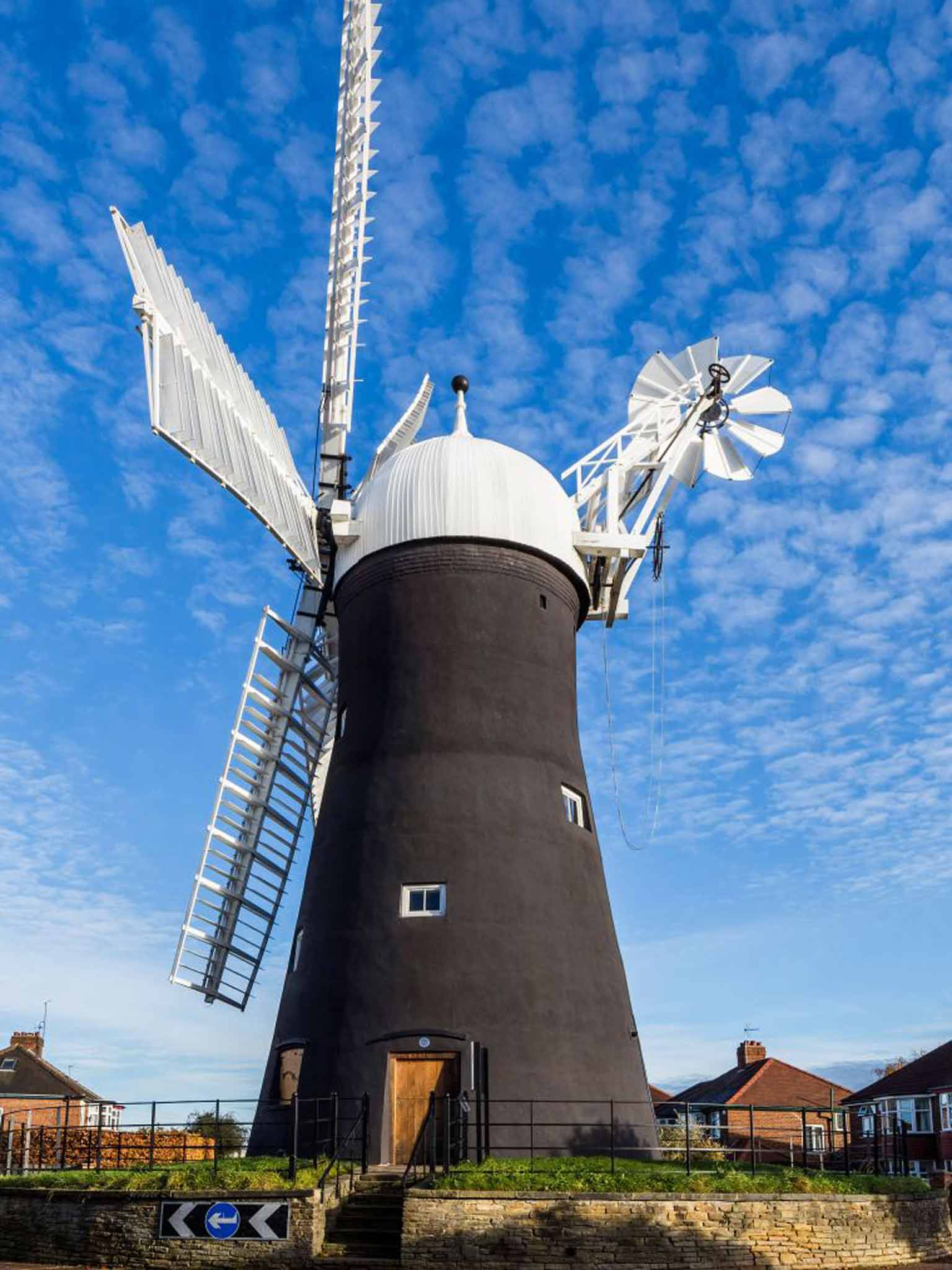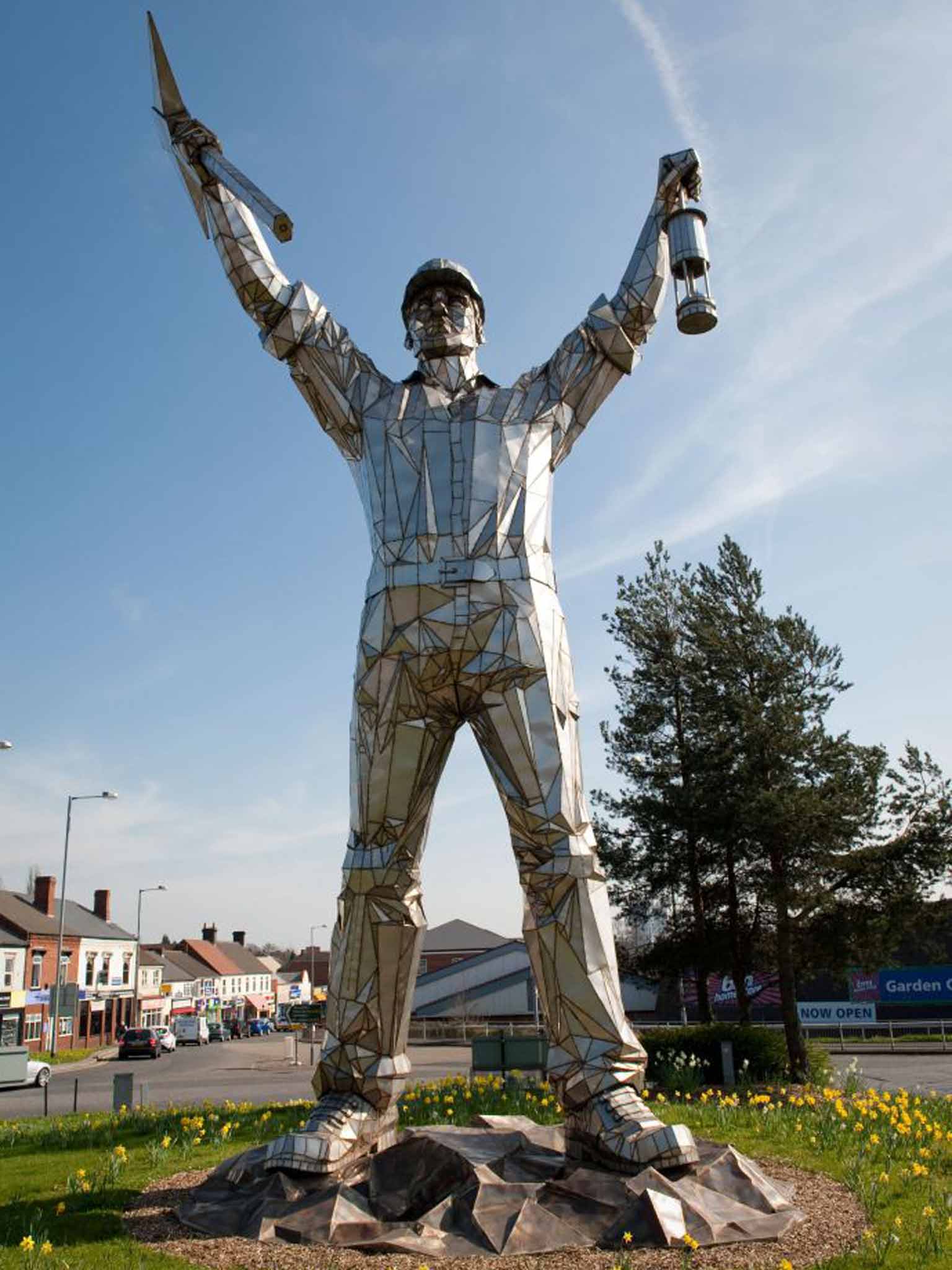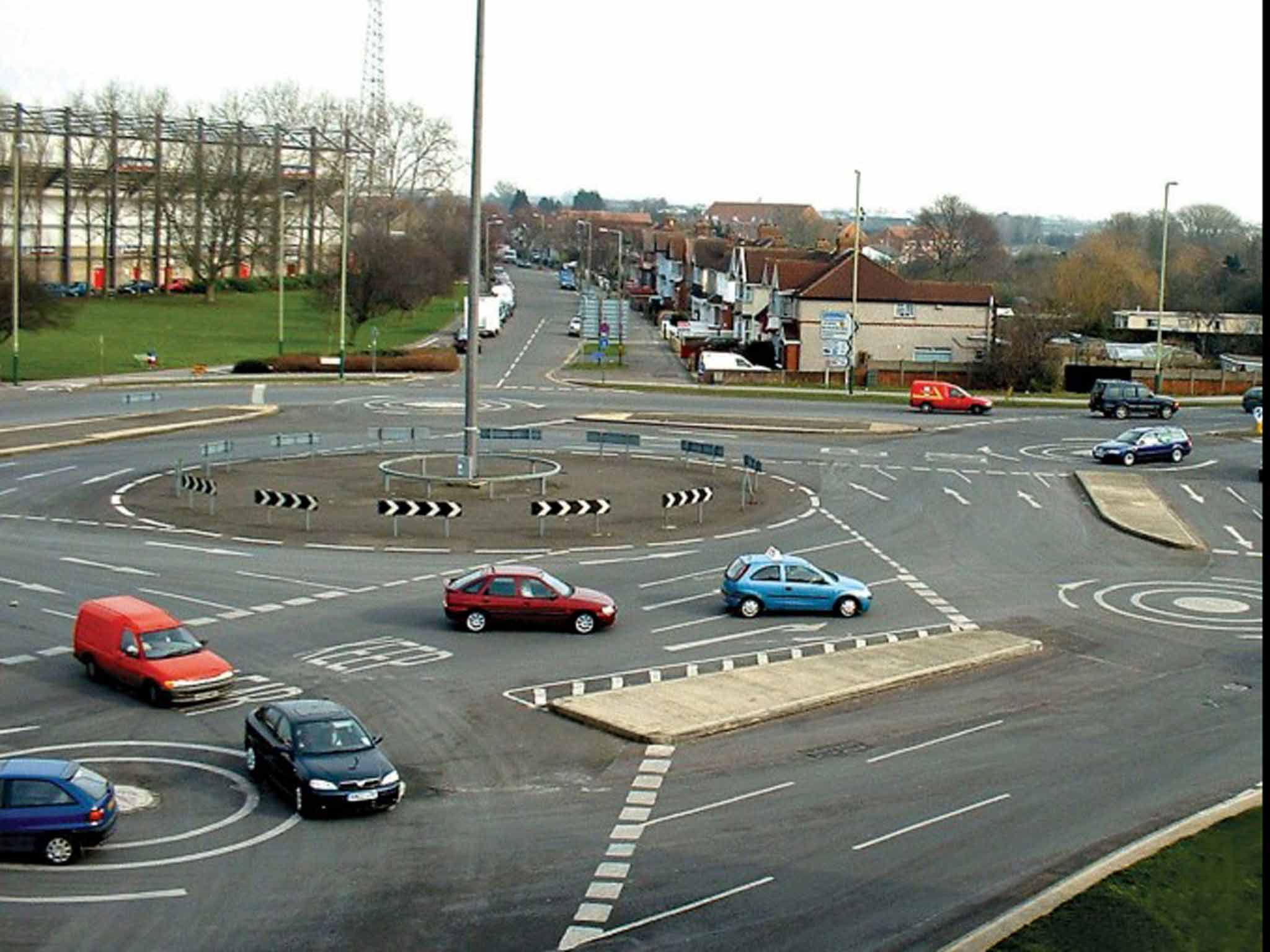The magic of roundabouts
Statues, a giant cockerel, windmills … the UK's traffic islands have everything, according to the Roundabout Appreciation Society. The what? asks Rhodri Marsden

"I see a roundabout as an oasis on a sea of tarmac," says Kevin Beresford, his deadpan West Midlands accent conveying a sarcasm that simply isn't there.
"They lift our spirits during long journeys with their infinite variety," he continues.
Is that not an overly lyrical description of a road junction? "Well," he says, "I'm the President of the UK Roundabout Appreciation Society. What do you expect?"
The society has been judging contenders for Roundabout of the Year since 2003, ever since Beresford's printing company was looking for something different to put on a calendar and, somewhat inexplicably, chose roundabouts. ("We were tired of Beckham, firemen and Jordan," he says.) This year, the first prize went to Tewkesbury's Stonehills roundabout, on which sits a wooden statue of a horse and rider charging into battle. "Personally," he says, "I liked the Tin Man in Brownhills in Staffordshire. It's like a Soviet-era statue of a miner. On a roundabout."
Were you outvoted? "No, I'm never outvoted," he replies. "This society is not a democracy."

What is it then, exactly? "Well," he says, "we meet on a bi-monthly basis in a pub in Redditch and we swap data. People go on their holidays, they take pictures of roundabouts, they bring them back and we discuss the different aspects of said roundabouts."
And is there a wide range of tastes within the society? "I prefer the ones that tell a story," he says, "but some go for what we call the Titchmarshes – the roundabouts in full bloom. Some are functionalists. They love the Magic Roundabout in Swindon, which is a roller coaster of a ride. It's the white-knuckle ride of all roundabouts. A pure adrenaline rush."
Beresford is producing a Roundabouts of the World calendar this year, inspired by global enthusiasm for the society and its aims, whatever they may be. "The first roundabout appeared in New York in 1903," he says, "but they never took off in America for some reason. It was the French that really picked up the ball and ran with it – they've got something like 30,000 roundabouts over there, and the standard is really of the highest order. The Arc de Triomphe – there's something like 12 exits off that thing! But it was the British who coined the word roundabout. Before that it was called a one-way gyratory."
Beresford pauses. "Actually," he says, "I quite like the word gyratory."

He is proud of the way that the UK has caught up with and, in many cases, overtaken the French. "A lot of roundabouts reflect what's going on the area – like in Dudley you have a lot of heavy industry, so there's a lot of foundry objects on their roundabouts. Or it might reflect something that's cultural, like the Dorking Cockerel roundabout: a 20ft giant cockerel. Apparently it's quite a famous cockerel, the Dorking Cockerel. It's quite unique. I think it's got five toes."
Maybe roundabouts enable local authorities to lose their inhibitions; to fill dead space by allowing their imaginations to run wild?
"Definitely," he says. "You can put anything on a roundabout. In Birmingham, you've got a Chinese pagoda on one. You've got laser and light shows in Haverhill, a working windmill in York, a shepherd and his flock in Shepton Mallet. And now you're getting councils employing artists to come up with sculptures, which is great. If Andy Warhol was alive, he'd definitely be putting stuff on roundabouts."
But does the society have disdain for the plain roundabout with a simple expanse of grass? "Not at all," says Beresford. "A garden in the middle of a road junction? It's perfect. It's much more green than a traffic light. We have a saying in the society: There's No Green In Traffic Lights. They cost a lot of money to maintain, you know. But most roundabouts, you can just mow them. Job done."
Join our commenting forum
Join thought-provoking conversations, follow other Independent readers and see their replies
Comments
Bookmark popover
Removed from bookmarks